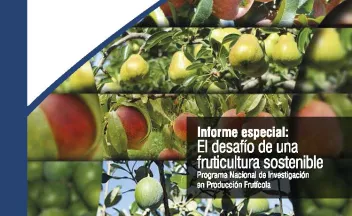El cultivar de frutilla "INIA Yrupé" (SGS73.1).

RESUMEN. "INIA YRUPÉ" se recomienda para la producción de otoño, invierno y primavera bajo cultivo protegido. Posee un desempeño superior a 'INIA Ágata' en productividad semi precoz, arquitectura de planta, forma y sabor de fruta, con la ventaja de tener menor incidencia de botrytis, arañuelas y oidio.

